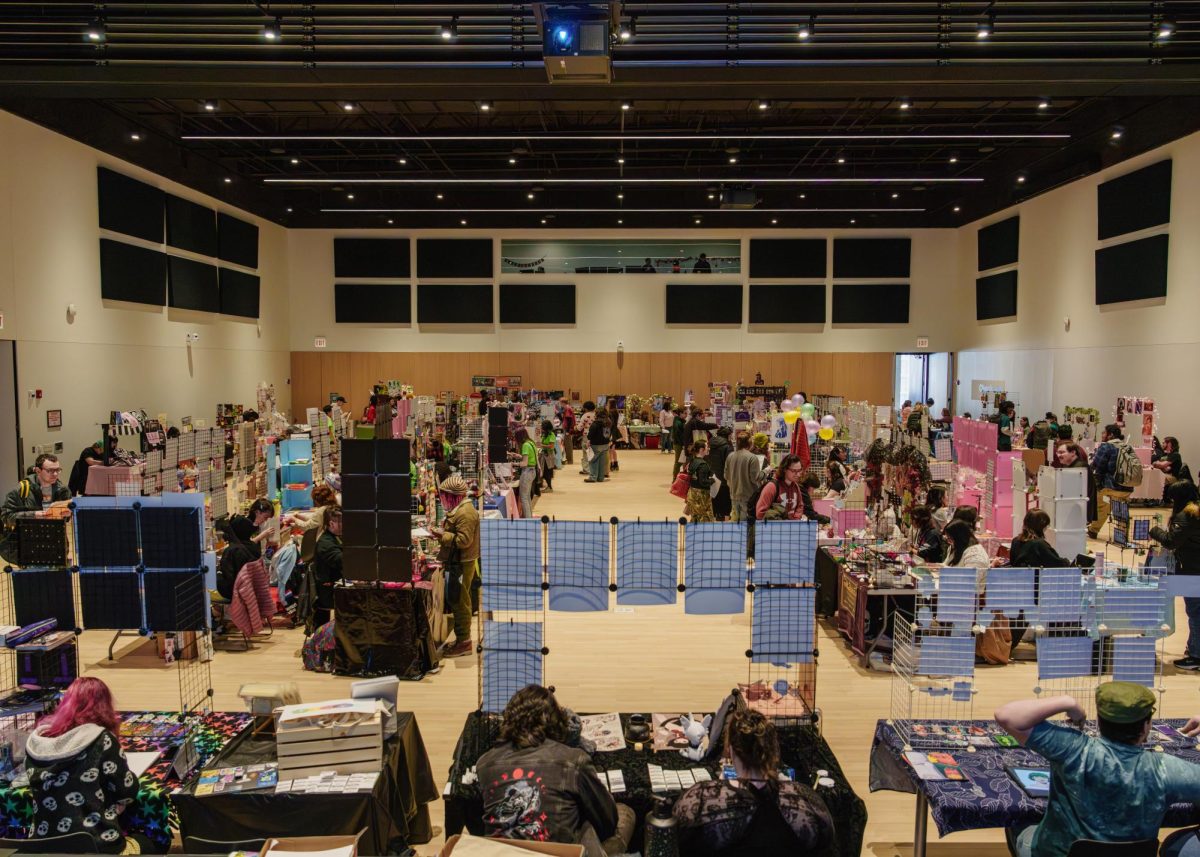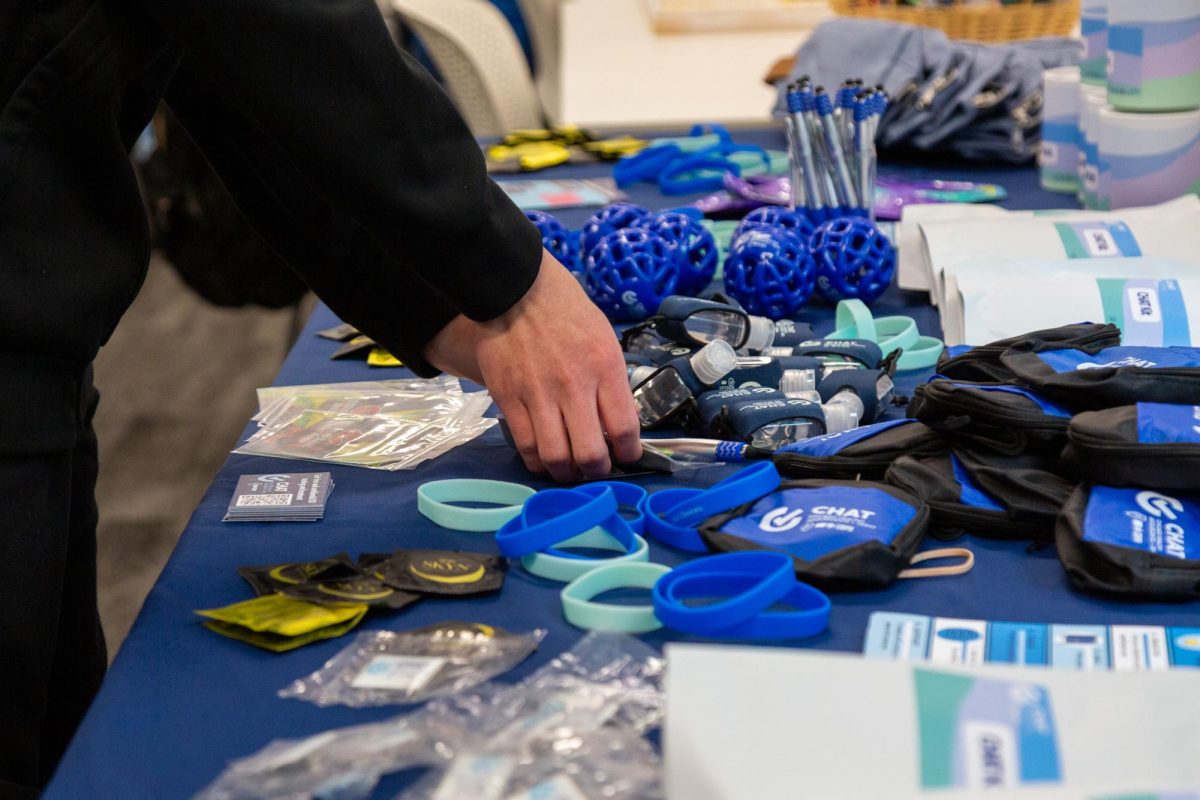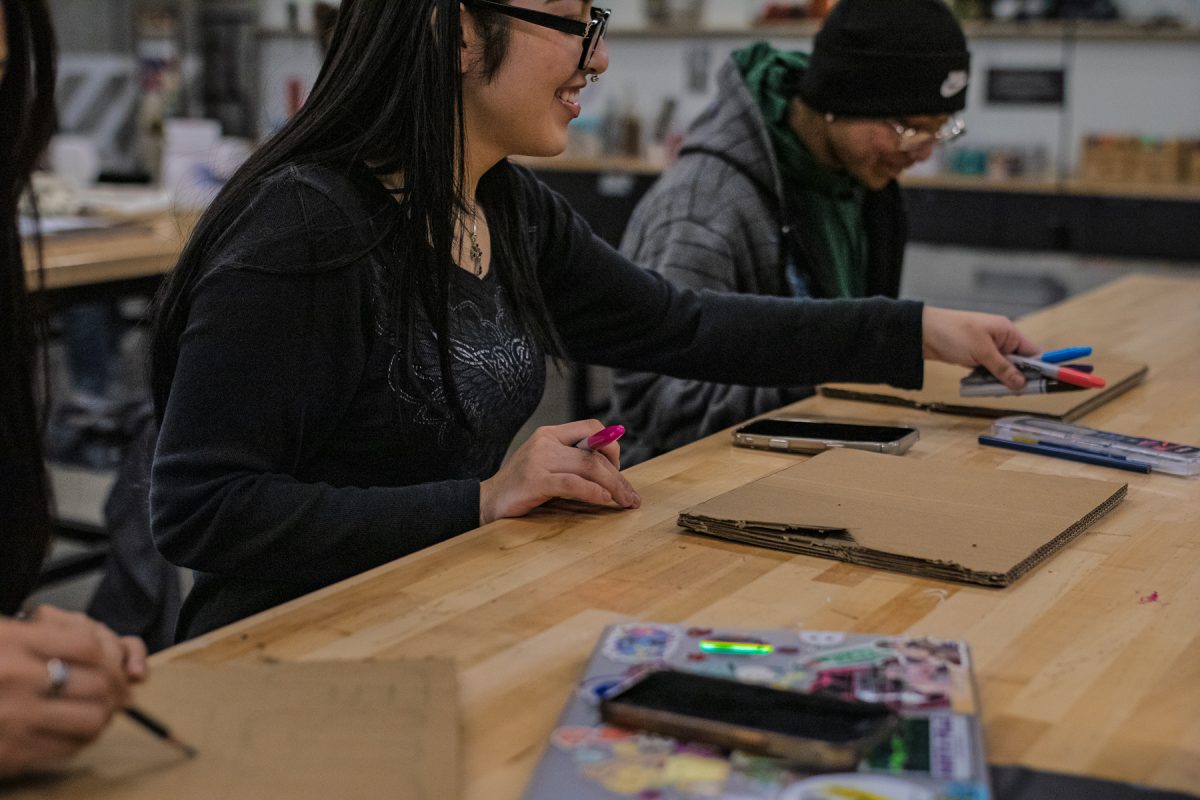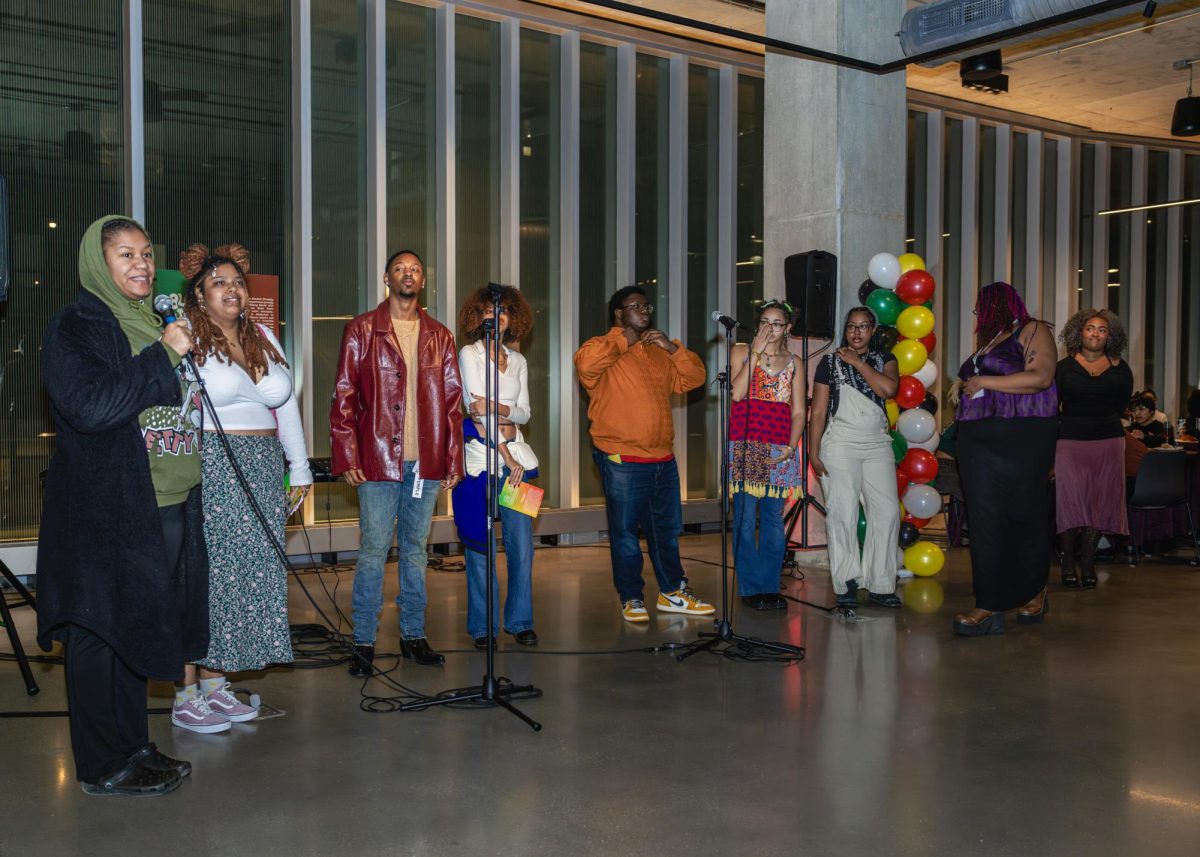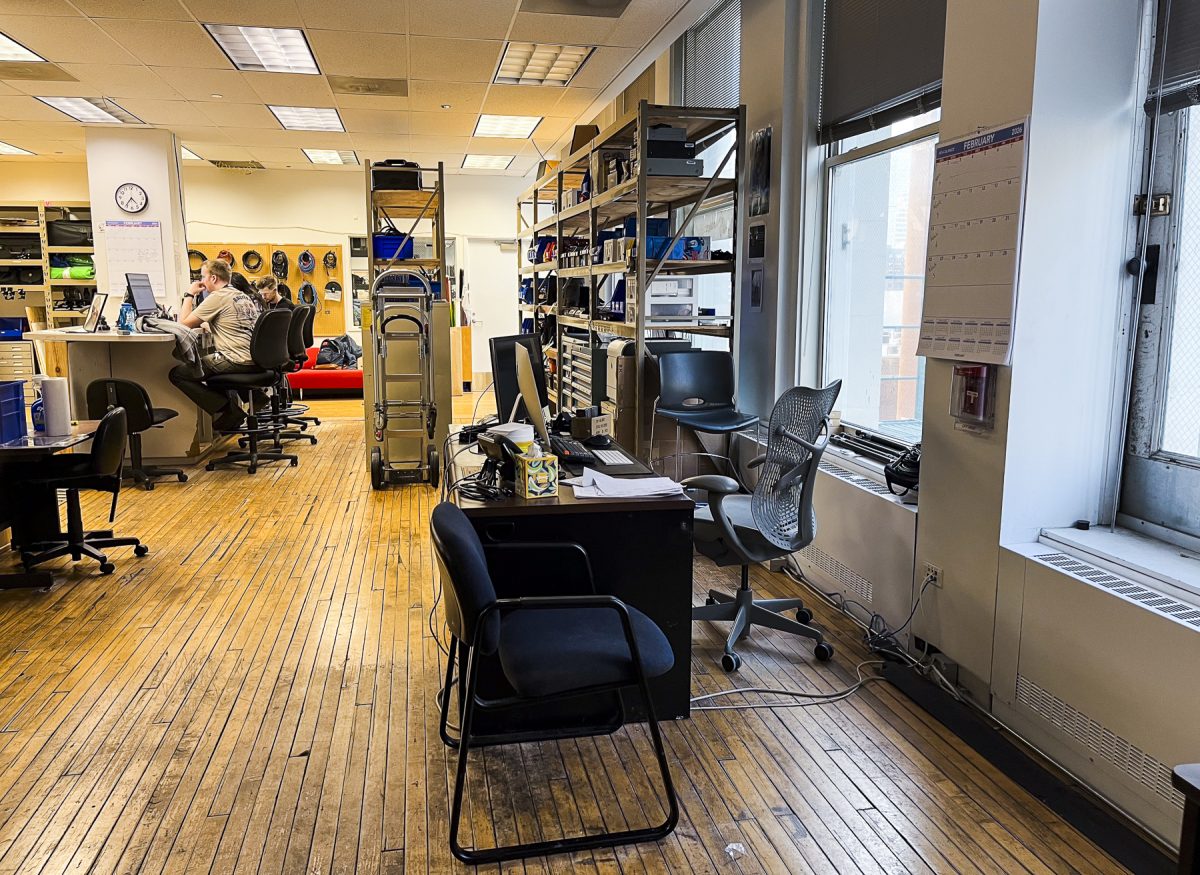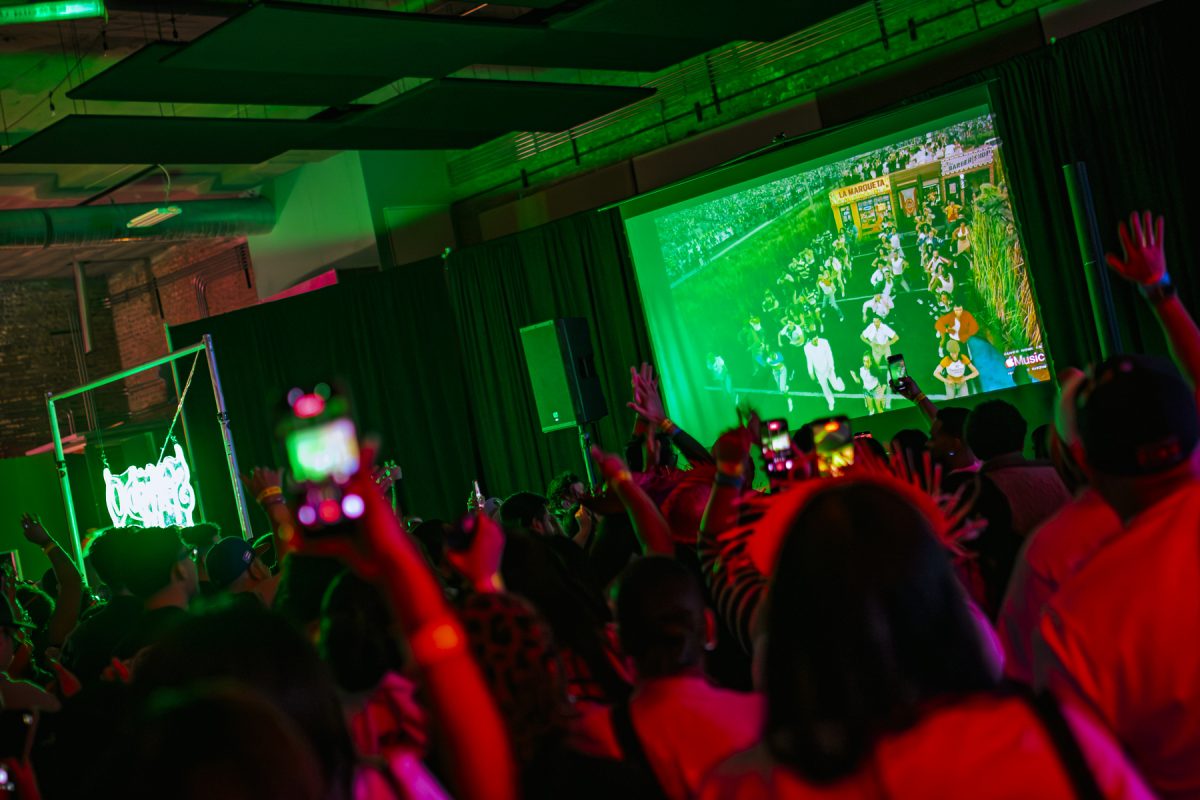After hosting a sensory-assessible commencement for the past three years, the college will not offer a sensory room or sensory bags at commencement on Sunday, May 18 at the Credit 1 Arena.
The initiative had been one of the first of its kind when it started in 2022.
Sheila Carter, associate dean of Student Life & Engagement, said the new venue does not have a sensory space nor additional space that can be used for that purpose. Though Carter had made inquiries about this, as it is an “important element of our large-scale event planning,” there were no options to accommodate a sensory space,” she said.
Jeanne Doyle Kelly, Columbia’s former director of Services for Students with Disabilities, who had helped push for the sensory-assessible commencement, retired earlier this year, as the Chronicle previously reported.
Though there is no sensory space on site for commencement, Sarah Schorle, administrative assistant for Services for Students with Disabilities, said the ceremony will not include flashing lights, and while the pre-ceremony concert will feature music and singing, the volume will remain moderate.
Guests are encouraged to bring headphones or fidgets. In the past, the college had provided them for students, faculty or guests who may have needed them. Quieter areas are available on the main level of the Capital 1 Arena, Schorle said.
Though there will not be a designated sensory space at commencement, the college is offering two quiet spaces during the Manifest Arts Festival on Friday, May 16. The sensory space in the Student Center will be open for use and for the second year in a row, the School of Communication and Culture is offering a quiet zone in Room 215 on the 2nd floor of the 33 E. Ida B. Wells.
Also, Manifest will feature American Sign Language interpretation at nearly all events, with licensed professional interpreters supervising students in compliance with Illinois’ Interpreter Licensure Law, said Angela Malcomson, associate professor in the ASL-English Interpretation in the School of Communication and Culture.
“Columbia has several faculty members, students and family members that communicate using American Sign Language, having access is critical for equality and a sense of belonging to the campus community,” Malcomson said.
This year, only one performance and two presentations do not have interpreters assigned to them. They include the Art Battle at 624 S. Michigan Ave, the Interior Architecture Senior presentation at 754 S. Wabash Student Center and the Wildlife Domestication – Samantha McCoy presentation at 916 S. Wabash Ave.
With many students having family or friends who want to celebrate with them, senior ASL-English interpretation major Emily Hayes said that having an interpreter is very important, especially with the ASL program being eliminated as part of the historic restructuring at the college this year.
“There are so many events they host that it is hard to have interpreters at everything, but opening it up so students can work is a great idea, but as we know Columbia has shut our program down, so for future events there will be less and less interpreters,” Hayes said.
As Columbia continues efforts to improve accessibility on campus, the presence of ASL interpreters at student events like Manifest signals meaningful progress, Hayes believes. For students in the ASL-English Interpretation program, this visibility not only supports the Deaf community, but also prepares future interpreters for the demands of their profession.
“Having ASL interpreters means that Deaf people can access the same information as everyone else and means they can properly enjoy Manifest,” said Grace Friend, a senior in the ASL-English Interpretation program. “Additionally, getting people used to seeing ASL interpreters on stage is important as well.”
While interpreter presence at events has increased, students like Friend point out the contradiction in Columbia’s simultaneous decision to phase out the ASL-English Interpretation major despite a nationwide interpreter shortage and no other accredited programs in Illinois.
“Having interprets at the majority of the events is great, and it is definitely a step in the right direction for accessibility at Columbia,” Friend said. “However, they are also closing our major in the midst of an interpreter shortage. Illinois has no other accredited ASL interpreting programs.”
Schorle said that all campus buildings are ADA accessible, although sidewalk repair and construction has blocked several areas around Columbia’s South Loop campus.
Copy edited by Patience Hurston


